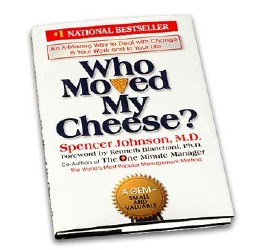New 2011 Uniform CPA Examination
Major Developments That Will Be New and Different on the Uniform CPA Examination
effective on January 1, 2011
Authoritative Literature
A new release of authoritative literature – with FASB Accounting Standards Codification™ – will be made available for the CPA Examination. To prepare for this release, view the new Tutorial and Sample Tests to be posted on the http://www.aicpa.org/BecomeACPA/CPAExam website in early Fall, 2010.
Calculator
A new online calculator will be introduced on the CPA Examination. To learn about its features, view the new Tutorial and Sample Tests to be posted on the http://www.aicpa.org/BecomeACPA/CPAExam website in early Fall, 2010.
Candidate Performance Report
The report providing candidates with information about the strengths and weaknesses of their examination performance will be revised. A description of the new candidate performance report will be widely distributed and posted on the http://www.aicpa.org/BecomeACPA/CPAExam website in early Fall, 2010.
Content of the CPA Examination
New Content and Skill Specification Outlines (CSOs/SSOs) will go into effect. Candidates planning to test in or after 2011 should review and become familiar with the subject matter that will be eligible to be tested. The new CSOs/SSOs are available at the website http://www.aicpa.org/BecomeACPA/CPAExam/ExaminationContent/ContentAndSkills/DownloadableDocuments/CSOs-SSOs-Final-Release-Version-effective-01-01-2011.pdf.
International Standards
International Standards – including International Financial Reporting Standards (IFRS) – will become eligible to be tested. Questions on international standards will begin to be gradually integrated into the examination. Questions on U.S. standards will continue to be part of the examination. For more information, refer to the article on international standards in the Spring 2010 issue of The Uniform CPA Examination Alert available at the website http://www.aicpa.org/BecomeACPA/CPAExam/ExamNewsletter/DownloadableDocuments/Spring_2010_CPA_Alert_FINAL.pdf.
Passing Score
The AICPA Board of Examiners (BOE) will make a decision on the passing score in the early months of 2011, after data from the first testing window of the new examination release become available. Information about the passing score decision will be widely distributed and posted on the http://www.aicpa.org/BecomeACPA/CPAExam website.
Research Task – New Format
A new research task format will be introduced on the CPA Examination. To learn how to respond to research tasks, view the new Tutorial, and to see the new format in action, view the new Sample Tests. Both will be posted on the http://www.aicpa.org/BecomeACPA/CPAExam website in early Fall, 2010.
Scoring Weights
In the Auditing and Attestation (AUD), Financial Accounting and Reporting (FAR), and Regulation (REG) sections, Multiple-Choice Questions (MCQs) will account for 60% and Task-Based Simulations for 40% of the total score.
In the Business Environment and Concepts section (BEC), Multiple- Choice Questions (MCQs) will account for 85% and written communication tasks for 15% of the total score.
For more information, read the article in the Spring 2010 issue of The Uniform CPA Examination Alert at http://www.aicpa.org/BecomeACPA/CPAExam/ExamNewsletter/DownloadableDocuments/Spring_2010_CPA_Alert_FINAL.pdf.
Section Structure
The components of the Auditing and Attestation (AUD), Financial Accounting and Reporting (FAR) and Regulation (REG) sections will be:
• Three Multiple-Choice Question (MCQ) testlets, and
• One testlet containing six or seven short Task-Based Simulations (TBS)
The components of the Business Environment and Concepts (BEC) section will be:
• Three Multiple-Choice Question (MCQ) testlets, and
• Three written communication tasks on BEC topics
For more information, read the article in the Spring 2010 issue of The Uniform CPA Examination Alert at http://www.aicpa.org/BecomeACPA/CPAExam/ExamNewsletter/DownloadableDocuments/Spring_2010_CPA_Alert_FINAL.pdf.
Section Time Allocations
Testing time for the Auditing and Attestation (AUD) section will be shortened by a half hour to four hours. Testing time for the Business Environment and Concepts (BEC) section will be increased by a half hour to three hours. Testing times for the Financial Accounting and Reporting (FAR) and Regulation (REG) sections will remain the same as before at four and three hours, respectively. The total testing time for all sections of the examination remains unchanged at fourteen hours.
(Candidates should note that these changes refer to testing time only. Time scheduled at test centers will continue to include an additional half hour for the check-in process and completion of the survey at the end of the session.)
For more information, read the article in the Spring 2010 issue of The Uniform CPA Examination Alert at http://www.aicpa.org/BecomeACPA/CPAExam/ExamNewsletter/DownloadableDocuments/Spring_2010_CPA_Alert_FINAL.pdf.
Spreadsheet
A new spreadsheet will be introduced on the CPA Examination. To learn about its functionality, view the new Tutorial and Sample Tests to be posted on the http://www.aicpa.org/BecomeACPA/CPAExam website in early Fall, 2010.
Task-Based Simulations (TBS) – New Question Format
Short TBS will replace simulations in the current (long) format on the CPA Examination. To learn what TBS will look like and how to respond in the new format, view the new Tutorial and Sample Tests to be posted on the http://www.aicpa.org/BecomeACPA/CPAExam website in early Fall, 2010.






